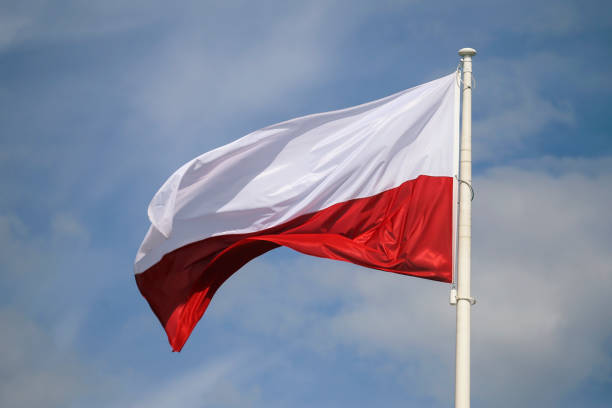
Largely thanks to young people in Poland, Donald Tusk and his coalition defeated the far-right Law and Justice (PiS) party that had governed Poland for eight years. During those eight years, Poland had joined other countries, especially Hungary, in the process of undermining the democratic foundations of their governing systems. This phenomenon gave rise to what is referred to as “the rule of law crisis”. Similarly to other populist parties in power, PiS seized control of independent state institutions and filled them with loyalists, resulting in Poland facing EU fund suspension for violating the rule of law. Now Mr. Tusk is faced with the tricky task of rectifying this by rewriting statutes and removing party loyalists. However, this task is hindered by the risk of having to break the rule of law to restore it. Mr. Tusk also has to deal with opposition from President Andrzej Duda, affiliated with PiS, who has vowed to veto government efforts as well as from the constitutional tribunal, dominated by PiS appointees.
The most significant challenge lies in the judiciary. PiS changed the law so that the Sejm, where it held a majority, could appoint members of the National Council of the Judiciary (NCJ), which nominates and promotes judges. Unsurprisingly, they then gave loyalists positions in those organs. The ECJ ruled against this change for it was found to be in breach of the principle of separation of powers. Nonetheless, it was not sufficient to stop the PiS, which instead targeted the polish judges who appealed to the ECJ. At the same time, PiS consolidated the roles of minister of justice and prosecutor-general, created a new national prosecutor position, and passed a law requiring presidential consent for dismissal, thus solidifying control over state institutions.
The new justice minister, Adam Bodnar, aims to dismantle this consolidation avoiding a veto by Duda, by declaring his appointment invalid. Bodnar enjoys the support of experts as well as the current government, however, he still faces opposition by the constitutional court. The justice minister is also attempting to replace regional court presidents as part of the wider scheme to give power back to judges. In summary, the government plans to bring the judiciary back to what it was before the PiS came to power. This is not only important for the “reconstruction” of Poland’s democratic system but also for its development as it is tightly linked to the release of frozen EU funds that Mr. Tusk is understandably eager to receive.
The second area in which Mr. Tusk will have to make some changes is state economic institutions. Surprisingly, although the Central Bank’s governor shows pro-PiS sentiments, his policy decisions do not reveal obvious signs of bias; in fact, Tusk himself has abandoned the idea of investigating him. Nonetheless, a trickier situation is presented by state-owned companies, as showed by Orlen’s takeover of Lotos which is now surrounded by allegations of assets undersold for political reasons, in this case, PiS’s wish for an oil monopoly. The government has so far dismissed the CEO and supervisory board and it is expected to have to intervene with similar manoeuvres again.
The third big challenge concerns the media. Under PiS, state media became propaganda outlets, with a new supervisory council filled with allies. To counter this, the culture minister used commercial law to replace state media staff. However, this move raised legal doubts and prompted some groups like the Helsinki Foundation for Human Rights to express concerns about constitutional violations in relation to the manoeuvres. Furthermore, the government is liquidating media outlets, but some courts refuse to register the liquidations, which poses a further obstacle.
As seen, Mr. Tusk has embarked on a very difficult process to restore the rule of law in Poland. The reforms enacted by the PiS were far-reaching and not as straightforward to undo as some might imagine. The current government has to navigate an intricate web of requirements to legally restore the rule of law and other fundamental democratic principles previously undermined. Apart from the structural challenges the government faces, it also has to manage the opposition that is strongly resisting these changes and ensuring that it takes a long time to achieve them. Nonetheless, Mr. Tusk seems to be set on the right path to slowly but surely restore Poland’s democracy and bring it back to the central stage in the European forum.
He has all the necessary connections and support within the EU to complete what he has started and to ultimately change the power dynamics in the Union in such a way that benefits Poland and the main block within the EU. In fact, Tusk’s government means that Poland is now again more aligned with France and Germany, which is very supportive of the changes taking place, to the detriment of countries like Hungary, preferred by PiS. The latter is an important point for it means that the balance of power within the EU is now less favourable to backsliding countries. In fact, in the past few years Hungary and Poland have shielded each from actions being taken against them; however, now Hungary finds itself more isolated.
Finally, notwithstanding the challenges and opposition faced, Mr. Tusk’s government is set to restore democratic principles in Poland. Such a change will benefit Poland which will be able to utilise EU funds and to strengthen its position as a key player in the EU. Similarly, this shift is very much welcomed at European level for it means the Union has to deal with one less backsliding country and it strengthens its ability to take action against violations of fundamental principles.
By The European Institute for International Law and International Relations















